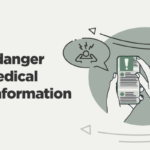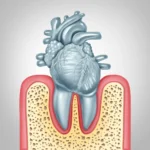Introduction to the importance of regular screenings for overall health and well-being
Regular screenings are often seen as just another item on the to-do list. But have you ever considered that these simple health checkups could be life-saving? Think about it: early detection of potential health issues can make all the difference between a minor concern and a serious condition. Imagine catching something before it has the chance to escalate, giving you not just peace of mind, but also a fighting chance against diseases.
In today’s fast-paced world, it’s easy to overlook our health until something feels off. However, prioritizing regular screenings is crucial for maintaining overall well-being. They serve as proactive precautions that empower us to take charge of our health journey—because sometimes, an ounce of prevention truly is worth a pound of cure. Let’s dive deeper into why these screenings matter and how they can transform lives for the better.
Types of screenings available for various health concerns
Health checkups encompass a wide array of screenings, each tailored to address specific health concerns. For instance, annual cholesterol tests are vital for monitoring heart health and identifying risks early.
Women benefit from mammograms, which can detect breast cancer at its most treatable stage. Pap smears are equally important for cervical cancer screening during routine gynecological exams.
Men should pay attention to prostate-specific antigen (PSA) tests as they age, helping catch potential issues before they escalate.
Blood pressure checks offer insight into cardiovascular risk and guide lifestyle modifications.
For those at higher risk or with family histories of certain conditions, genetic testing may provide crucial information about predispositions to diseases like BRCA-related cancers or hereditary high cholesterol.
Diabetes screenings help identify glucose abnormalities that could lead to serious complications if left unchecked. Each type of screening serves as a proactive measure in safeguarding your well-being and enhancing life expectancy.
The benefits of early detection and prevention
Early detection can be a game changer when it comes to health. Identifying issues before they escalate often leads to more effective treatment options.
For instance, catching cancer in its early stages significantly boosts survival rates. The sooner you act, the better your chances of recovery.
Prevention is equally vital. Regular screenings help monitor risk factors like high cholesterol or blood pressure. Addressing these concerns proactively helps avoid serious complications down the line.
Moreover, knowing your health status empowers you to make informed lifestyle choices. With regular checkups, you can adopt changes that enhance well-being and longevity.
These proactive measures not only save lives but also reduce healthcare costs in the long run. Investing time in screenings today pays off with peace of mind tomorrow.
Common misconceptions about screenings
Many people hold misconceptions about health checkups that can prevent them from seeking necessary screenings. One common belief is that only those with symptoms should get screened. This couldn’t be further from the truth; many conditions are asymptomatic in their early stages.
Another myth is that screenings are painful or invasive. While certain tests may feel uncomfortable, advancements in medical technology have made most procedures quick and minimally invasive.
Cost often deters individuals from pursuing regular checkups. However, many insurance plans cover preventive services, making them more accessible than one might think.
Some also assume they’re too young for certain screenings. Age isn’t the sole factor; family history and lifestyle choices play crucial roles in determining when you should start screening for various diseases.
Dispelling these myths encourages proactive health management and emphasizes the importance of regular assessments to catch potential issues early on.
How often should you get screened?
The frequency of health checkups depends largely on your age, gender, and risk factors. For many adults, an annual screening is a solid baseline. Regular checkups can catch potential issues before they escalate.
If you’re younger than 50 with no significant family history or symptoms, screenings every two years may suffice. However, those over 50 should consider more frequent tests for conditions like colorectal cancer or heart disease.
Women often have specific guidelines regarding mammograms and cervical screenings that vary based on their age. Men might focus on prostate health as they reach middle age.
Consulting with your healthcare provider is crucial to tailor a schedule that fits your personal health profile. They can help assess risks and recommend appropriate intervals for various tests.
Tips for preparing for a screening appointment
Preparing for a screening appointment can make the experience smoother and more productive. Start by gathering your medical history, including any medications you take and previous health issues. It’s essential to have this information handy.
Consider jotting down any questions or concerns you want to discuss with your healthcare provider. This ensures that you won’t forget anything important during the visit.
Dress comfortably, as some screenings may require changes into gowns or other attire. If fasting is part of your preparation, plan accordingly to avoid hunger pangs.
Arrive on time or even a bit early. This gives you space to fill out paperwork without feeling rushed. Bring someone along if it makes you feel more at ease; support can often alleviate stress in an unfamiliar setting.
The role of technology in improving screening accuracy and accessibility
Technology is revolutionizing health checkups in remarkable ways. Advanced imaging techniques, like MRI and CT scans, provide clearer insights into our bodies. These tools help doctors detect issues earlier than ever before.
Telehealth services are also gaining traction. Patients can now consult with specialists remotely, making screenings more accessible for those who live in remote areas or have mobility concerns.
Mobile apps play a significant role too. Many offer reminders for regular health checkups and track symptoms over time, fostering proactive healthcare habits.
Artificial intelligence is enhancing diagnostic accuracy by analyzing data patterns that may elude the human eye. This leads to faster results and fewer false positives or negatives.
As technology continues to advance, it paves the way for personalized screening processes tailored to individual risk factors and lifestyles. With these innovations, timely intervention becomes increasingly feasible and effective.
Cost and insurance coverage considerations
When it comes to health checkups, understanding the cost and insurance coverage is crucial. Many people worry about the financial implications of regular screenings.
Insurance plans often cover a variety of preventive services, including routine exams and certain tests. It’s important to review your specific policy details. Checking with your provider can clarify what is included.
Even if you are uninsured, numerous community health centers offer low-cost or sliding-scale options for screenings. This makes essential health checks more accessible.
Don’t forget about out-of-pocket expenses like copays or deductibles that may apply during these appointments. Being informed can help you prepare financially.
Investing in your health means being proactive about potential costs now rather than facing larger medical bills later on due to untreated issues. Taking these precautions not only safeguards finances but also ensures overall well-being over time.
Personal stories or statistics showcasing the impact of regular screenings on individuals’ lives
Regular health checkups can profoundly change lives. Take the story of Sarah, for example. At 40, she felt healthy and energetic. However, during a routine screening, doctors detected early-stage breast cancer. Because it was caught in its infancy, her treatment options were far less invasive than they could have been if she had waited until symptoms appeared. Today, Sarah is thriving and advocates for regular screenings to everyone around her.
Statistics support these personal stories too. According to the American Cancer Society, people who participate in recommended screenings are more likely to survive certain cancers compared to those who don’t get screened at all. Early detection through health checkups has led to improved outcomes and higher survival rates across various conditions.
Moreover, data shows that chronic diseases like diabetes or hypertension can be managed effectively when identified early through simple tests performed during regular visits with healthcare providers.
These examples highlight the life-saving potential of preventative care measures and underscore why making time for health screenings is crucial for long-term well-being. Prioritizing your health means prioritizing your future; every appointment is a step toward better living.














